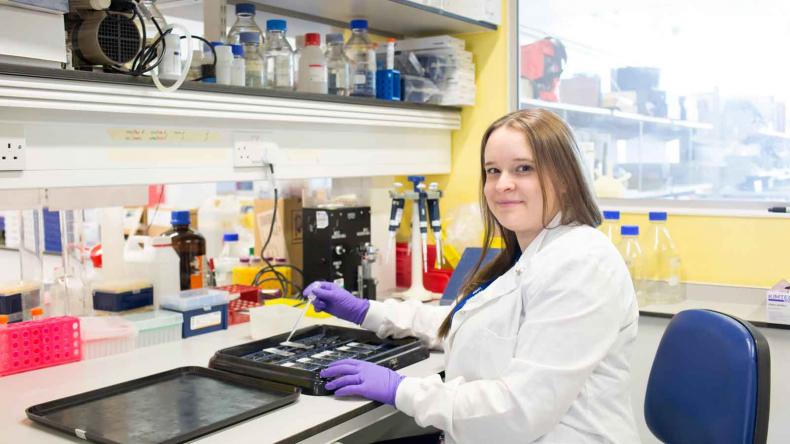
Equality, diversity and inclusion at the ECTRIMS research conference
Each year, researchers from across the globe meet at the world’s largest MS research conference, ECTRIMS. One of this year’s much discussed topics was equality, diversity and inclusion.
MS doesn’t discriminate. It can affect people of any background, age, gender or ethnicity. So to understand it and treat it, research must apply to everyone with MS.
But we know there’s a lack of diversity in MS research. That’s because historically people from minoritised backgrounds have been systematically excluded.
At the conference, researchers shared insights into the inequalities and health disparities people from minoritised backgrounds may experience. And shared strategies on how we can make MS research more diverse and inclusive.
How diverse is MS research?
Sarah Knowles, a Research Analyst in Swansea University looked at participants in the UK MS Register. She showed this group was less ethnically diverse than the overall MS population and the general UK population. That means people from minoritised ethnic backgrounds may be under-represented in the Register. And findings using Register data might not be as applicable to them.
Find out more about how the Register helps in research
Lauren Taylor, a PhD student at the University of Nottingham, presented findings from the NEuRoMS project. The project uses online tests to find out if someone might have difficulty with their cognition. For example their memory. She found some people were less likely to complete these online tests. They were people from minoritsed ethnic backgrounds, lower socioeconomic backgrounds, and older people. So their voices aren’t currently reflected in the project. Considering different methods could improve inclusion from these groups.
How can clinical trials be more diverse?
Currently the majority of clinical trial participants are White. And many trials don’t report data on race or ethnicity.
To increase diversity and inclusion, Dr Lilyana Amezcua at the University of Southern California recommended researchers focus on:
- considering barriers making people mistrust research
- providing practical and financial support to people taking part
- improving the way clinical trials are designed, to help recruit and retain more people with MS
- including diverse people early in projects to have more impact on improving health equity
How does race affect MS care?
Anna He, a PhD student at Karolinska Institutet in Sweden showed initial findings on race, disability and DMT use in the UK. She found people with MS identifying as Black or Asian had higher EDSS score than other groups in the study. She also showed people identifying as Black waited longer to get their first disease modifying therapies (DMT). And were typically treated with DMTs for less time.
More research is needed to find out what the underlying causes for these differences are. And how we can best address them.
What are we doing to improve diversity?
We know equality, diversity and inclusion is the key to doing good research. That's why we're really pleased that it's been a priority at this year's ECTRIMS conference. But we also know there's much more work to do until MS research is really open and accessible to everyone.
Our EDI Action Plan Progress Report shows how we’re working on making MS research more inclusive:
- We hold outreach events for communities that are often underrepresented in research. For example, co-hosting webinars with the national support group Asian MS, to promote involvement in research.
- It’s now a requirement for all new trials to collect data on characteristics like ethnicity. This will help us to find out if certain groups of people are missing from our trials.
- We're committed to funding projects that put equality, diversity and inclusion at the heart of their research. For example the ADAMS study, which looks at the genes that contribute to MS risk. The researchers are recruiting people from ethnic minority backgrounds. They want to find out whether risk genes are the same or different for people of non-European ancestry. We're also funding a new project focused on improving MS care for people from minoritised ethnic backgrounds.
- We've collected data about the researchers applying for our funding. We found only a small number of researchers come from minoritised ethnic backgrounds. That’s why we're continuously working on making our application process more inclusive.
Read about another hot topic from ECTRIMS, research into Epstein-Barr virus



